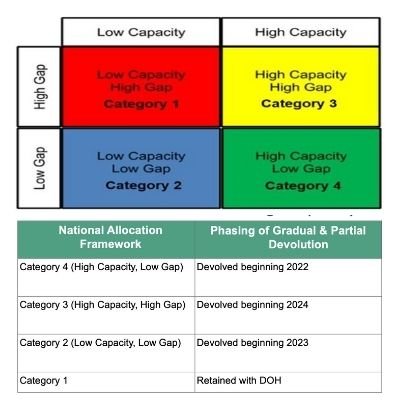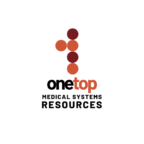One Top Knowledge Hub
Bridging state-of-the-art medical information to public health care stakeholders and decision makers
Full devolution to increase public expectations of local health care services

Beginning 2022, the Philippine national government is expected to fully devolve a wide range of functions it has been delivering on behalf of local government units following a Supreme Court decision which recomputed and as a result, increased the shares of LGUs in the national revenue.
Devolution with the accompanying fiscal resources is seen to positively impact the capacity of local government service delivery across critical areas including health, nutrition, and social welfare among others. Under the devolution transition plan presented by the Department of Health to various stakeholders during capacity building sessions in 2021, local governments will gradually assume responsibilities in procurement, warehousing, storage, and distribution of healthcare related commodities to their target beneficiaries.
This significantly changes some of the established dynamics in public health care provision. For example, under the DOH devolution transition framework, the Health Facilities Enhancement Program (HFEP) – a centralized funding scheme which aims to improve public health facilities by constructing new and upgrading and rehabilitating existing public health facilities across the country such as barangay health stations, rural health units/urban health centers and Local Government Unit hospitals will now be devolved to LGUs subject to a capacity-gap framework and devolution schedule (see below).
Under this schedule, local government units are classified into four categories depending on their existing health service capacities and delivery gaps. If previously, all LGUs are able to secure funding and program support from the DOH through the HFEP, by 2024, only LGUs with low capacity and high gap are eligible for HFEP funding and implementation support. This means that LGU decision makers to whom HFEP implementation is devolved need to develop capacity in ensuring that facilities are equipped with the necessary devices, supplies, and other health care commodities. This demands a more proactive role among health service planners in identifying appropriate interventions and delivery strategies, including commodities that can effectively respond to constituency demand and needs.
With the wider responsibilities and increased resources at their disposal, local health service administrators and decision makers are bound to face a more intense public pressure to deliver quality health care.
Product knowledge is key to enhancing trust in local health service capacity.
Through our wide range of health care solutions One Top Medical Systems Resources is committed to assisting local health planners and decision makers in selecting the right kind of equipment, devices, and commodities that will ensure continuous and satisfactory health care service especially in local medical facilities and health units.

